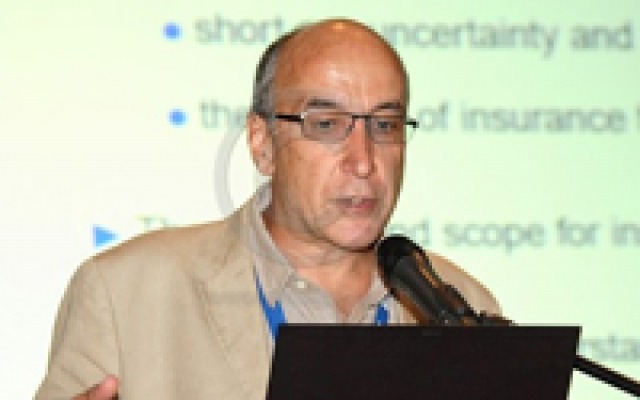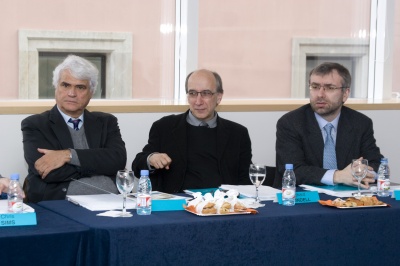community
Scientific Council Member Richard Blundell Speaks on Consumption Inequality at UPF

New research by GSE Scientific Council member Richard Blundell (UCL and Institute for Fiscal Studies) explores the link between income inequality and consumption inequality through the degree of insurance to income shocks.
Results of the paper, titled “Consumption Inequality and Partial Insurance”, were shared in a UPF Labor, Public and Development Seminar on April 11 at the Ciutadella Campus. One of the research's central findings was that the disjuncture between income and consumption inequality in the US during the 1980s is largely explained by changes in the persistence of income shocks.
The findings of the paper, forthcoming in American Economic Review, constitute what Professor Blundell describes as an “attempt to reconcile existing research on changes in inequality in income and consumption, examinations of inequality over time via consumption and income, and work on intertemporal decisions under uncertainty.”
Using newly available consumption data, Professor Blundell, together with coauthors Luigi Pistaferri (Stanford and CEPR) and Ian Preston (UCL and Institute for Fiscal Studies) documented a disjuncture between income and consumption inequality in the US over the 1980s. Further analyses revealed that the disjuncture was likely caused by changes in the persistence of income shocks. In particular, an initial growth in the variance of permanent shocks is then replaced by a continued growth in the variance of transitory income shocks.
“It is important to point out that it is the change in the degree of persistence of income shocks, rather than the level itself, that explains the observed disjuncture between the evolution of income and consumption inequality,” Professor Blundell explained. “Clearly, the disjuncture in evolution of labor income and consequent inequality in US and UK in the 1980s was driven largely by the nature and durability of shocks to the labor market earnings.”
These results, says Professor Blundell, have important implications for both macroeconomics and labor economics. Insofar as lack of smoothing opportunities implies a greater vulnerability to income shocks, the research can be relevant to issues of the incidence and permanence of poverty studied in the labor economics literature.
“Studying how well families smooth income shocks, how this changes over time in response to changes in the economic environment confronted, and how different household types differ in their smoothing opportunities, is an important complement to understanding the effect of redistributive policies and anti-poverty strategies,” concludes Professor Blundell.

Professor Blundell (center) at the GSE Scientific Council meeting in March 2008
The BSE community offers over 20 seminars and workshops on both the Ciutadella and Bellaterra campuses covering a wide variety of topics in economics. Upcoming UPF Labor, Public and Development Seminars will feature Eliana La Ferrara (Università Bocconi; IGIER) on April 18, Ethan Lewis (Dartmouth University) on April 25, and Sendhil Mullainathan (Harvard University) on May 7.
Richard Blundell last visited the BSE campuses in March, when he attended the first meeting of the School’s Scientific Council. He holds the David Ricardo Chair of Political Economy at University College London, where he was appointed Professor of Economics in 1984. Since 1986 he has been Research Director of the Institute for Fiscal Studies, where he is also Director of the ESRC Centre for the Microeconomic Analysis of Public Policy. He was appointed to the Scientific Council of the BSE in 2006.
